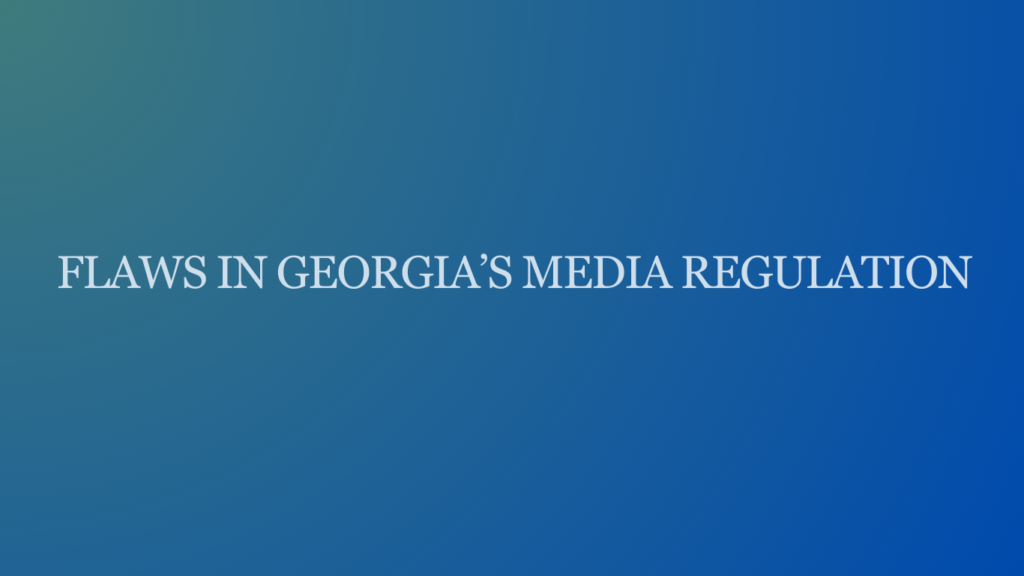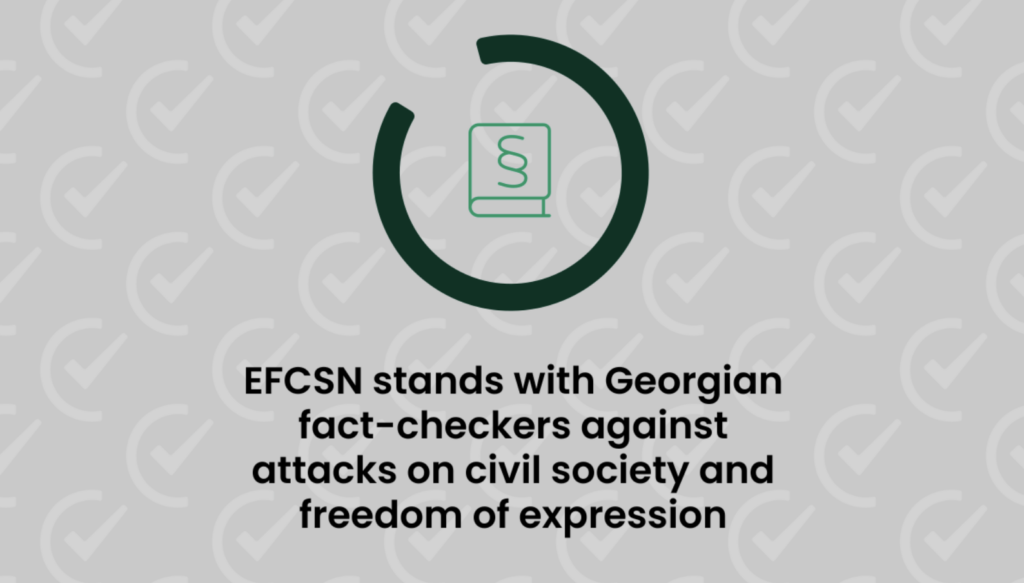Summary
The positions and decisions of the Georgian National Communications Commission as a legal entity of public law with a strong influence on the media environment continue to fall in line with the political vision of the ruling Georgian Dream party. In 2022, at the behest of Georgian Dream, the Communications Commission levied sanctions against three critical media outlets despite a lack of legal grounds. Of those most affected was media outlet Mtavari Arkhi, which was fined 118,689 GEL (approximately $44,500).
Introduction
On August 23, 2022, the Georgian National Communications Commission satisfied the complaint of the ruling Georgian Dream party when it sanctioned three television channels (Mtavari Arkhi, Formula, and TV Pirveli) for their critical editorial policy. The Communications Commission issued a written warning to Formula and TV Pirveli and levied a fine against “Mtavari Arkhi” in the amount of 118,689 GEL.
Context
The decision to sanction the broadcasters resulted from a complaint filed by the Georgian Dream party with the Communications Commission on August 8, 2022, in which the ruling party demanded that the television stations be declared in violation of law for broadcasting a pro-Western and anti-Russian campaign announcement entitled “Home to Europe” on June 24, 2022.
It should be noted that members of the Georgian Dream party have long voiced support for the idea that media content should be regulated by the Communications Commission or the judiciary. Representatives of the commission also voiced support for the 2022 amendments to the Law of Georgia on Broadcasting, which replaced the previous policy of self-regulation by the media with a policy of regulation by the commission. This law, which has received widespread criticism by the media and civil society, was adopted by the Parliament of Georgia in a non-inclusive manner and without consultation of key stakeholders during its third reading on December 22, 2022.
CSO’s see the Commission’s decision as a clear sign of the worsening media environment
The proceedings launched against the critical media garnered significant criticism from civil society organizations. On August 11, 2022, the Media Advocacy Coalition issued a statement regarding the ruling party’s request to punish three critical broadcasters, labelling it “alarming.” The coalition called on the Communications Commission to discontinue its practice of restricting critical media outlets and consider both the importance of contentious issues and the risks of restricting media freedom when making decisions.
On August 23, 2022, following the Communications Commission’s decision against the broadcasters, the coalition issued another assessment, marking the commission’s decision as a clear sign of the worsening media environment in Georgia. It noted a lack of legal justification for the decision and argued that it violated Article 17 of the Constitution of Georgia, which guarantees freedom of expression, information, media, and the internet. Moreover, the coalition asserted that the limitation of these constitutionally afforded rights is allowed only in accordance with the law when it is used to “ensure the necessary state or public security or territorial integrity in a democratic society, to protect the rights of others, to prevent the disclosure of information recognized as confidential, or to ensure the independence and impartiality of the court,” conditions it notes were clearly not met in this case.
The decisions of the Communication Commission have been appealed, but a court date has yet to be set. The delay of the case also represents a growing trend in which Georgia’s legal system consistently prolongs proceedings around cases that represent the interests of the media. Notably, it also contradicts the experience of cases that seek to prosecute representatives of the media, which, at the request of government representatives, tend to be considered expeditiously by the courts.
Conclusion
The decision made by the Communications Commission to punish critical media outlets at the behest of the Georgian Dream government clearly indicates that the regulatory body remains a tool of the government to control freedom of expression. The adherence of the Communications Commission to the demands of the ruling party and the deterioration of media legislation in 2022 can be considered contributory factors to a worsening media environment in which the Georgian Dream government continues to take actions that increase political pressure on broadcasters.


